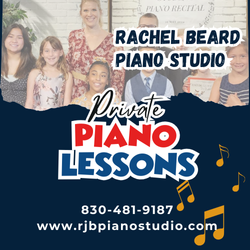Many folks believe that homeschooling is an expensive endeavor. With the proliferation of classes, and university model schools, or even with private schools offering classes for homeschoolers once or twice a week, many think this is the norm. They believe that paying hundreds of dollars for classes is “homeschooling”. 
This is like going out to eat for every meal and then wondering why your budget is overdrawn. Not to mention the wear and tear on the family as they get ready, get dressed, travel across town plus all the hours away from home.
Home education is about educating AT HOME. It’s not that difficult . . . or expensive.
If you were to cook every meal at home, like your grandmother did, it does take some work. You have to plan a menu, be sure you have the ingredients on hand, and you would have to cook EVERY DAY. And yes, you would still occasionally go out to eat. However, you would save money as cooing at home only costs a fraction of dinning out each day.
Now some days you will be cooking great gourmet meals, however, some days it will be left over casserole. But as long as the kids are fed balanced meals each day, they will continue to grow healthy bodies.
Home Education is the same. You make a plan, gather your ingredients (computer programs, library card, books, science equipment, crafts, paper and pencils) and then help your children learn EVERY DAY. Some days your lessons will rock with mental light bulbs lighting up all over the house. Other days you will grind out only the basics of writing, math and reading. Some days, the books may be left behind to watch a caterpillar develop it’s chrysalis, or a seed germinate, or discover something through mind craft. As long as the children are learning each day, they will develop healthy minds.
Now regarding the planning. Most folks don’t have their whole year’s menus planned on January 1st. And most teachers don’t have their whole lesson plans done on August 2nd. You can do lesson plans by the month, by the week, by the unit study, or just generally outline what each child needs to learn and then later go through the outline and fill in the details. So don’t let this idea of planning the lessons overwhelm you. Any textbooks you use will have lesson plans in the teacher’s edition. Unit studies usually have lists of their “ingredients”. And using whole books is a wonderful Beatrix Potter type of education with starts and stops as your children’s imagination is ignited and they ask questions which lead to unit studies and other wonderful hands on exploration.
How do you pick the ingredients? Just as going to a Farmers’ Market bring new things to your table, and pricing specials change your menu, shopping for homeschool-ish learning items can change as you find sales, give-aways, and little known items at used books sales, clearance sales, or my favorite, estate sales with vintage children’s books.
 Knowing your teaching style and your child’s learning style is important as you shop for items for your lessons. But once you have your plan, you will know what to obtain and what fits into your menu of education, so you only spend money on the things that fit. This will save you lots of money while building a new relationship with your children as you HOME educate them.
Knowing your teaching style and your child’s learning style is important as you shop for items for your lessons. But once you have your plan, you will know what to obtain and what fits into your menu of education, so you only spend money on the things that fit. This will save you lots of money while building a new relationship with your children as you HOME educate them.


